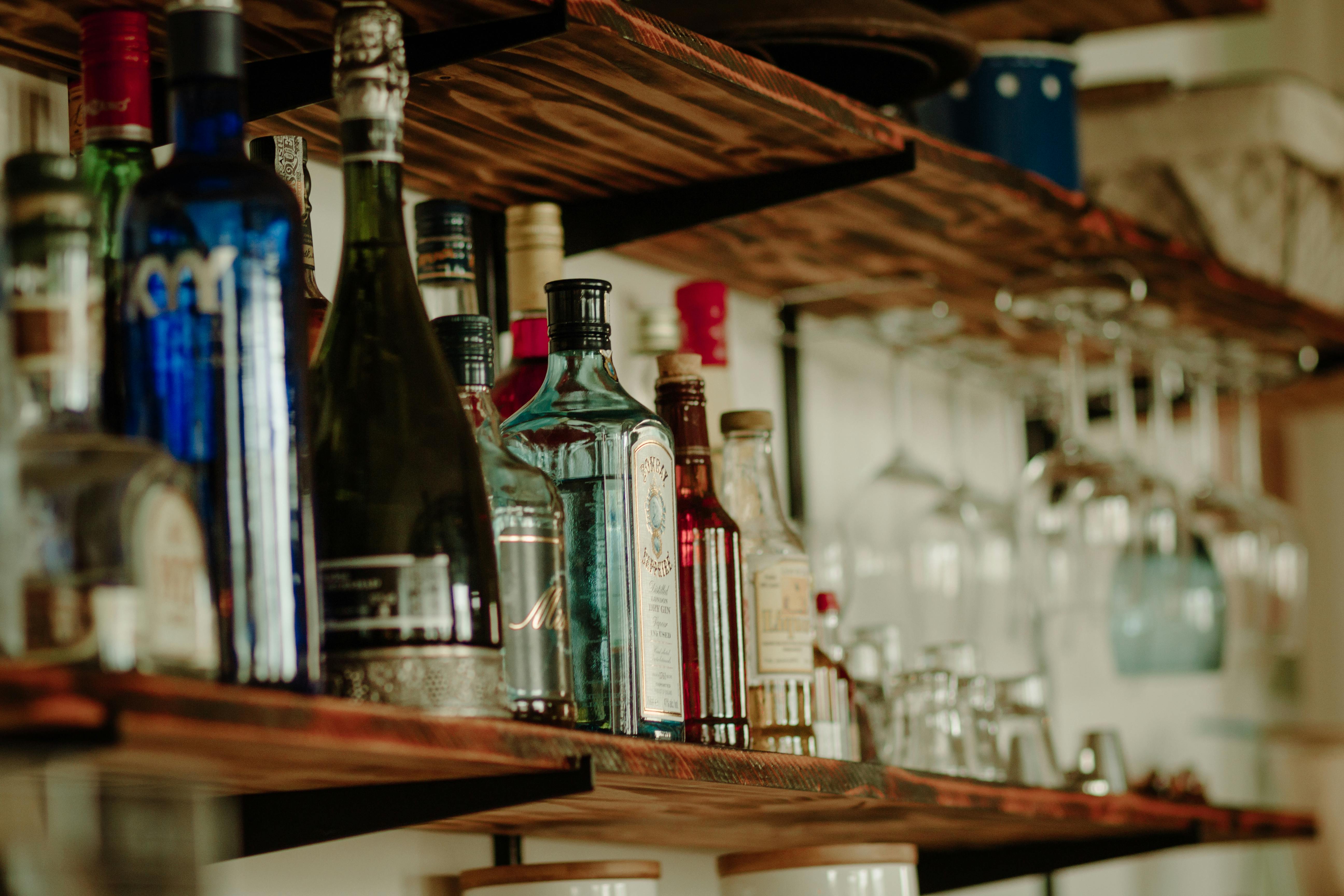
The Essential Guide to Whiskey Collecting: Tips and Top Bottles

The Essential Guide to Whiskey Collecting: Tips and Top Bottles
In recent years, whiskey collecting has gained popularity recently due to global trends, investment potential, and a growing interest in rare and premium bottles. This hobby is enjoyable and merges passion with potential profits, appealing to both casual drinkers and serious investors alike.
Global whisky market
The global whisky market is on a moderate upward trajectory. Rare bottles, particularly those that are both old and scarce, tend to yield higher returns. An example is the Macallan 1926, a single malt Scotch, which famously sold at auction for over $1 million in 2018.
Whisky investment
Whiskey consumption is rising in emerging markets like Brazil and India, indicating a continuing trend in whisky collecting and investing. However, according to the Scotch Whisky Association, the value of Scotch whisky appears to have decreased.
Rare whiskeys, including limited edition releases and premium bottles, present valuable investment opportunities. Collectors and investors are increasingly aware that these unique offerings can appreciate over time.
Understanding the Appeal of Rare Bottles
Collectors and investors of whisky value unique characteristics, distillery exclusives, and authentic bottle provenance, making the world of whisky both fascinating and diverse. From single malts, blended malts, and limited editions, the allure of different types of whisky captivates enthusiasts worldwide.
Types of fine whisky
- Scotch whisky is made in Scotland and follows strict regulations, offering flavors that range from honey and malt to floral heather notes.
- Irish whiskey is distinguished by its triple distillation, resulting in a light, smooth taste. Tasting notes often feature vanilla, and orchard fruits.
- Japanese whisky showcases exceptional craftsmanship, blending traditional Scottish techniques with a unique touch. It is known for its refined, smooth, and complex profile, balancing fruity, smoky, and floral notes.
- American whiskey includes various types like bourbon, rye, and Tennessee whiskey, each with unique characteristics. Common tasting notes include caramel, vanilla, and a hint of smokiness, appealing to many palates.
Bottle provenance and distillery exclusives
When it comes to collecting, bottle provenance and distillery exclusives hold significant value. Original bottlings from prominent distilleries such as Macallan, Laphroaig, and Glenfiddich are highly sought after.
Independent bottlers
Additionally, independent bottlers have become increasingly popular among investors looking for rare bottles. Limited edition releases are particularly valuable, especially when they feature handwritten edition numbers, which enhances their desirability.
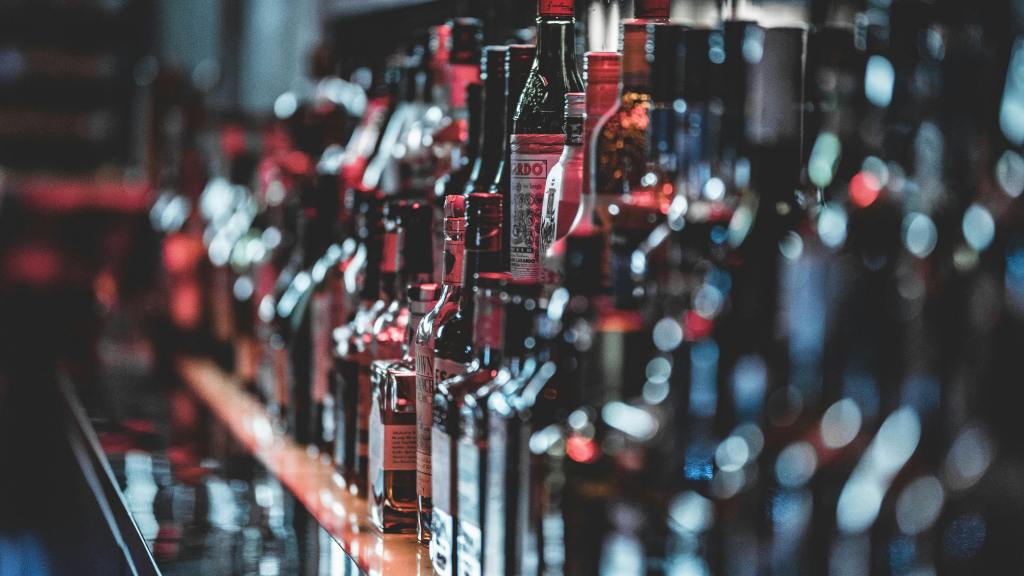
Key Factors to Consider Before You Start
Prospective collectors should thoroughly research auction markets, understand tasting notes, and explore how cask strength can influence both taste and value in their whiskey selections.
Auction markets
Auction markets are excellent for finding those rare bottles you may be seeking. However, it’s essential to approach this avenue with caution. Make sure to conduct comprehensive research on the specific bottle and the whiskey market. Setting a budget is also critical, as it helps to avoid impulsive buying during an auction’s excitement.
Tasting notes
Understanding tasting notes is equally important in the collecting process. Understanding these descriptions will refine your palate, help you discover new flavors, and determine your preferences.
Whisky cask strength
Cask strength is another key concept to consider. Cask-strength whiskey is bottled directly from the cask without any dilution, resulting in a higher alcohol content. This characteristic often leads to a more robust and intense flavor profile.
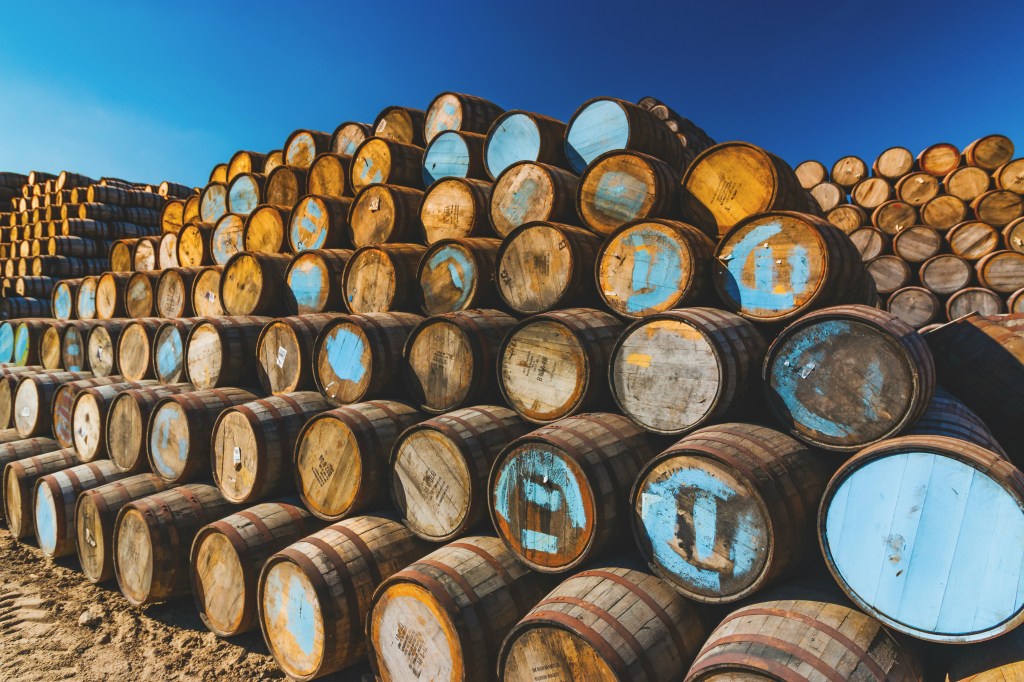
Building a Balanced Whiskey Portfolio
Successful collections often combine a mix of investment-grade bottles and personal favorites to balance both passion and profit. In the realm of whiskey investment, it’s essential to curate a portfolio that reflects both your interests and your financial goals.
When considering whiskey as an investment, explore the four main types: Scottish whisky, Irish whisky, Japanese whiskey, and American whiskey.
Whisky investment
As you embark on your whisky investment journey, there are several noteworthy bottles to consider.
- The Yamazaki 55-Year-Old Single Malt Whiskey is a prime example, showcasing a combination of two whiskeys. It boasts a notable deep amber color, enriched with wood and sweet notes, and is valued at an astonishing price of $917,397.
- Another option is the Old Rip Van Winkle Handmade 10-Year-Old Kentucky Straight Bourbon Whiskey, which is released in small batches annually. This delicious bourbon exudes aromas of candied fruit, and costs $6,705.
- Lastly, the 2022 Oban Distillers Edition Double Matured Montilla Fino Sherry Cask Wood Single Malt Scotch Whisky is noteworthy for its honey flavor and hints of cinnamon. This twice-matured whiskey is much more accessible at $97.
Building a portfolio
Building a solid portfolio requires a commitment to education. It’s vital to learn as much as you can about rare whiskey bottles and to understand how age and maturation influence value. Additionally, this will help you identify labels and ensure authenticity.
Researching distilleries is crucial, as reputable ones often offer collectible editions that can boost your investment. Visiting distilleries builds relationships, provides insights into whiskey-making, and keeps you updated on releases.
Balancing passion and profit
Ultimately, balancing passion and profit should be the guiding principle of your whiskey collection. Treat this endeavor as a hobby fueled by your interests. By setting a budget and exercising patience, you can enjoy the process while maximizing your potential returns.
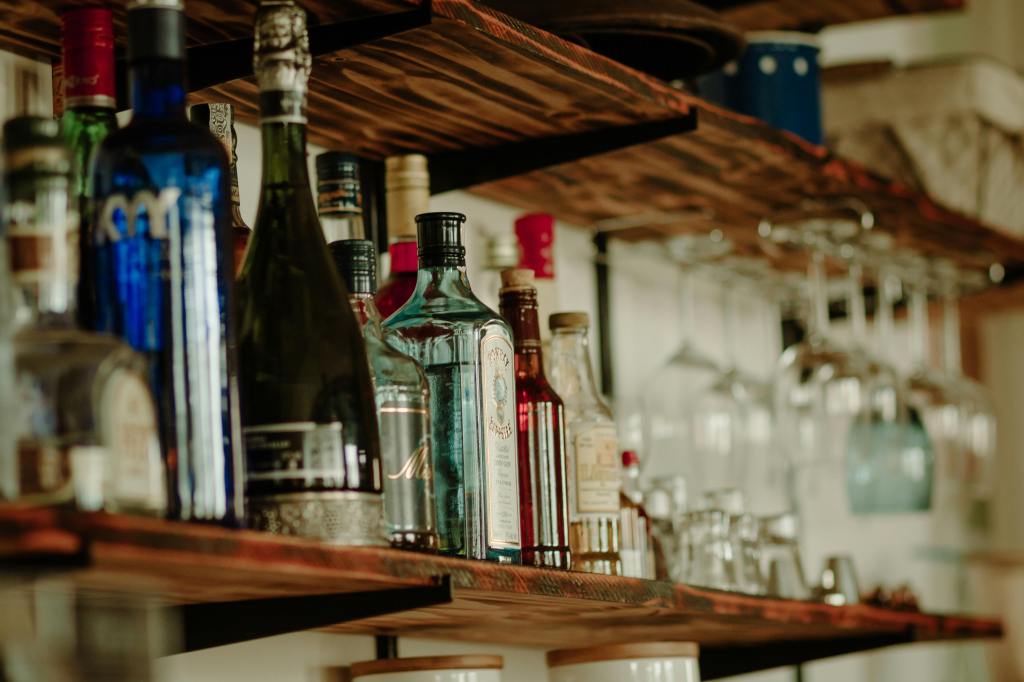
Storing and Preserving Your Collection
Proper storage conditions are essential for maintaining the long-term value of collectible spirits. Controlling temperature and humidity levels can significantly impact the integrity of your collection.
Storage conditions
When it comes to whiskey storage, it is best to keep the bottle upright. This prevents the cork from drying out, which could lead to oxidation of the whiskey. Additionally, it’s important to store bottles away from direct sunlight and heat sources. A cool, dark area with a consistent temperature will help maintain the quality of your investment.
If you wish to showcase your collection, consider using glass cabinets or a dedicated home bar space. These options protect from environmental factors while displaying your prized bottles.
Maintaining value
Maintaining value is another key aspect of caring for your collectible whiskey. If you’ve come across a rare bottle that includes its original packaging, make sure to keep it intact. The condition of the label and box can significantly influence the overall value, so preserving these elements is vital.
It is also recommended that you keep a detailed record of your whiskeys. Document important information such as age, distillery, tasting notes, cask type, alcohol content, purchase date, and any certificates of authenticity. This record boosts your knowledge and serves as a key reference for future sales.

Navigating the Secondary Market
Auction sites, whiskey trading platforms, and specialized brokerages provide collectors with ample opportunities to buy, sell, and swap their prized bottles.
These platforms serve whiskey enthusiasts who value the heritage and details of collecting. Navigating these markets wisely is key to making informed decisions.
Auction markets
Auction markets are great for finding rare bottles, but it’s important to choose a reputable auction house and understand the bidding process. Before bidding, review bottle images for red flags like unusually low prices to avoid costly mistakes.
Trading platforms
Online forums and social media groups can be valuable resources for those looking to trade. They allow collectors to connect and make trades, but exercising caution is paramount. Always verify the credibility of those you’re dealing with to ensure a safe trading experience.
Collector community
Lastly, engaging with the whiskey community is a great way to expand your knowledge and connections. Whiskey clubs serve as excellent venues for buying, selling, and trading bottles while fostering camaraderie among collectors. Whiskey shows offer tasting, buying, and selling opportunities, ideal for enthusiasts to enhance their appreciation.
Retailers
When it comes to purchasing whiskey, buying directly from retailers can often yield good results. Specialty retailers may offer unique selections that aren’t available in secondary markets. Engaging with these establishments can enhance your collection without the risks associated with the secondary market.
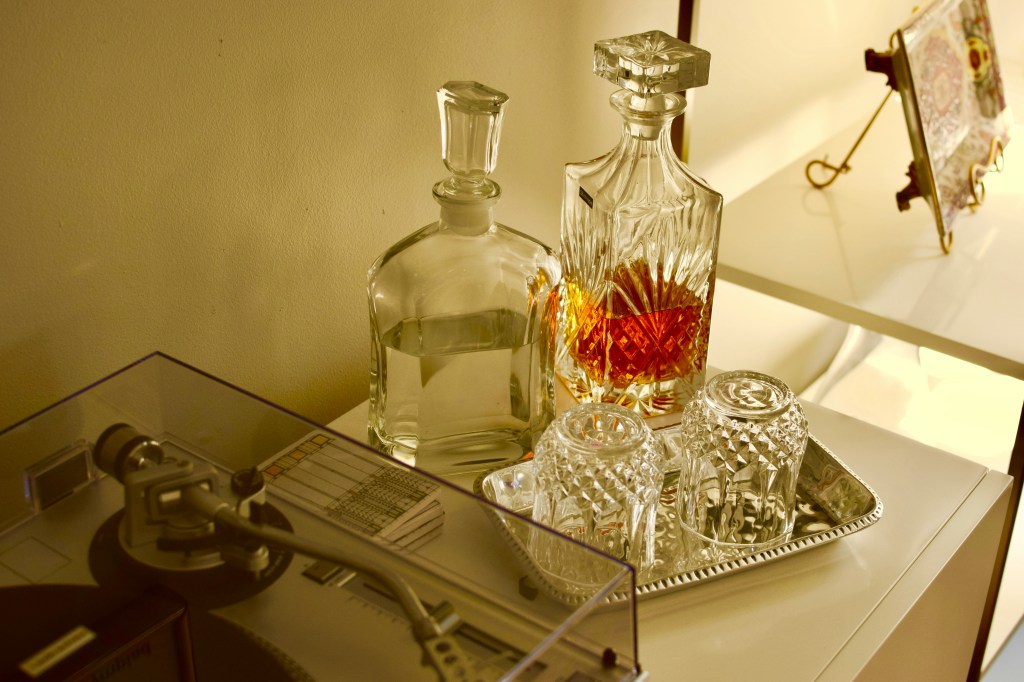
The Ongoing Art and Appreciation
Collecting whiskey combines financial investment with personal enjoyment, offering enthusiasts a unique way to appreciate the craft and heritage of this timeless spirit. Whether you prefer Scotch whisky, bourbon, or single malts, there is something for everyone to collect. Whiskey’s evolving world invites both connoisseurs and newcomers to discover the craftsmanship and passion behind each sip.
Sources
http://sothebys.com/en/articles/guide-to-starting-your-whisky-collection
https://www.ohbev.com/blog/whiskey-market-forecasts-and-trends
http://blackenedwhiskey.com/blog/how-to-start-a-whiskey-collection
https://blackenedwhiskey.com/blog/what-is-cask-strength-whiskey/
http://topwhiskies.com/blogs/whisky-blog/how-to-start-a-whiskey-collection
http://vinovest.co/blog/whiskey-collection
http://greatdrams.com/thoughtpiece-on-the-motivations-for-collecting-whisky
http://smws.com.au/the-art-of-collecting-whisky
http://masterofmalt.com/blog/post/how-to-start-a-whisky-collection.aspx
About Collectibles Insurance Services
Collectibles Insurance Services has been protecting collections since 1966 and all coverage is provided by a carrier with a group rating of “A” (Excellent) by AM Best, the leading rating agency for the insurance industry.
Comprehensive coverage includes, but is not limited to: accidental breakage, burglary, fire, flood, loss in the mail, theft, natural disasters, and other causes of loss unless specifically excluded from the policy. Deductibles start at $0 for collector policies and we provide coverage for the market value of your collection for losses in excess of $50.
Additionally the protection extends At home and away, and we don't require collection itemization and serial number nor extensive paperwork and red tape.
